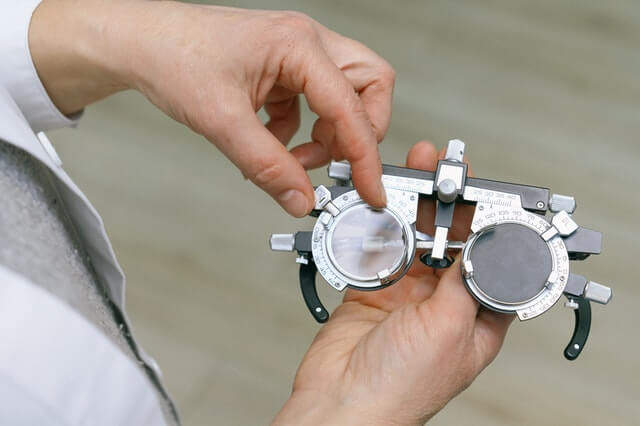Hartsdale Family Eyecare Eye Doctor in Hartsdale, New York
You look through your eyes to see the glorious world around you, and your eye doctor looks into your eyes to see a view of your health. In addition to spotting the signs of ocular disease, conditions such as diabetes, high blood pressure, rheumatoid arthritis, and possibly your risk for Alzheimer’s can also be detected by an eye exam at your eye clinic.
Eyes comprise many delicate parts that don’t always age well. That’s why regular comprehensive eye exams by a qualified eye care provider are essential! These check-ups give your optometrist or eye doctor a chance to view the eyes’ inner tissues, where the early signs of a problem often appear.
Approximately 61 million people in the US are at an increased risk for serious vision loss. In fact, researchers at Johns Hopkins found that losing one’s eyesight holds the #1 spot on Americans’ list of worst health nightmares. Learn how you can help prevent this nightmare from coming true.
Many eye diseases can be quickly and easily diagnosed during a Comprehensive eye exam, Pediatric eye exam and Contact lens eye exam. If you were diagnosed with an eye disease, such as Cataracts, Glaucoma, Macular degeneration, Diabetic retinopathy, or Dry eye, you may be overwhelmed by the diagnosis and confused about what happens next. Will you need medications or surgery – now or in the future? Is LASIK eye and vision surgery an option for you ? Our Hartsdale eye doctor is always ready to answer your questions about eye disease and Contact lenses.
Lifestyle changes that benefit your eyes
Eye care professionals claim that embracing these lifestyle hacks can help keep your vision sharp and healthy for the long-term:
- Eat a lot of veggies: In particular, choose to munch on produce that’s packed with vitamin A, such as carrots, squash and pumpkin, as well as vegetables high in antioxidants (namely lutein), such as leafy greens like collards, spinach and kale.
- Don’t smoke: If you’re a smoker, quitting can lower your risk of lung and heart disease, along with helping to prevent age-related macular degeneration, optic nerve damage and cataracts
- Wear sunglasses: It’s important to protect your eyes from UVA and UVB rays all year round. Choose sunglasses with large lenses that block 99% to 100% of radiation from the sun’s rays.
- Protect your eyes with safety goggles: Safety goggles or eye guards protect your eyes during sports and construction work, especially when you’re engaged in activities such as playing with a speeding ball, using chemicals or grinding metal.
Get eye care for uncomfortable symptoms
If you experienced painful vision with symptoms such as itching, stinging, redness, swelling, or blurriness – don’t ignore it! Contact an eye clinic near you to schedule an emergency eye exam. Only an eye doctor or certified optometrist can assess your condition to determine whether treatment is required. Leaving certain eye conditions untreated can lead to vision damage.
Self-help to safeguard your eye health
Relieve dry eye syndrome
Staring at a screen can cause or exacerbate the symptoms of dry eye. Intense watching of any digital device can make you forget to blink, which dries out your eye surface. Practice the 20-20-20 rule to relax and moisturize your eyes (= every 20 minutes, look 20 feet into the distance, for 20 seconds).
Prevent eye infections and pink eye (conjunctivitis)
Some unhealthy (but unfortunately, common) practices can lead to serious eye infections, such as using old makeup. Be sure to discard eye makeup every three months to prevent bacteria from building up. If you wear contact lenses, inadequate hygiene is another cause of eye infections. Always wash your hands before handling your contacts, take them out nightly (even if they’re labelled for extended wear), and disinfect and store them, or discard them, according to your optometrist’s instructions.
How to Handle Floaters
In general, floaters are harmless clusters of cells that glide around in the clear vitreous gel of your eyeball. Your brain adjusts to floaters, and eventually, you won’t see them. However, if you suddenly notice a bunch of new floaters or you see flashes of light or a shadow cast over your vision, contact your eye doctor immediately. An eye exam is necessary to rule out or diagnose any retinal problems, such as a retinal tear.
Sharp vision is valuable for all parts of life – help keep your eyes healthy by taking care of them with the eye care they deserve!
Hartsdale Family Eyecare, your Hartsdale eye doctor for eye exams and eye care
Alternatively, book an appointment online here CLICK FOR AN APPOINTMENT
FOLLOW US

